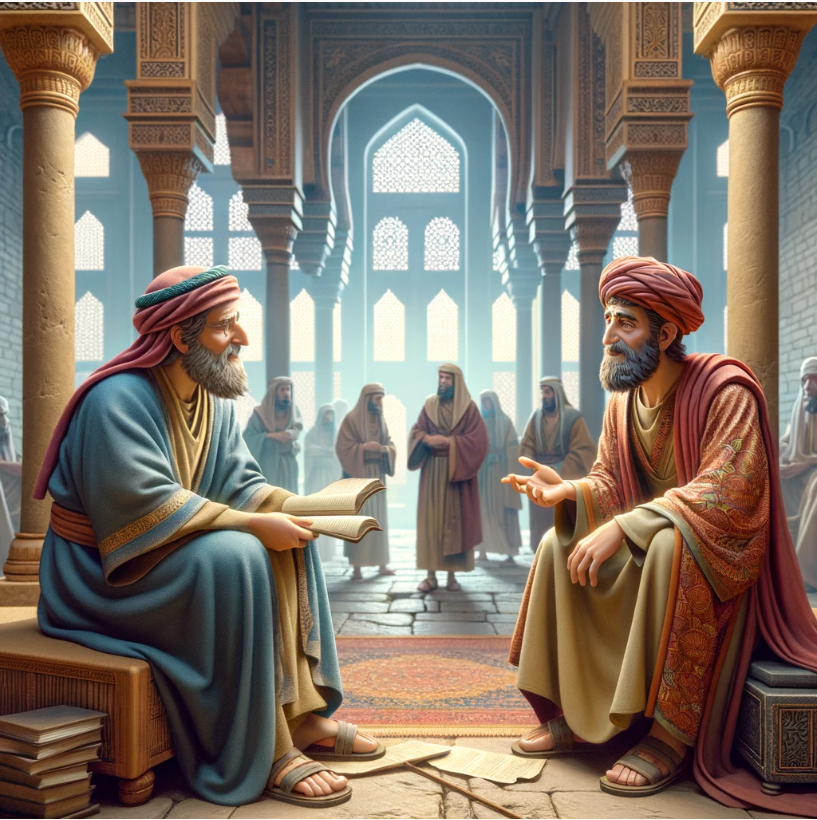
Eunuchs are discussed in several places in the Bible. Key references include: Isaiah 56:3-5, Matthew 19:12 and Acts 8:27-39. These passages address different aspects of the lives and spiritual roles of eunuchs in biblical times.
Isaiah 56:3-5
Neither let the son of the stranger, that hath joined himself to the Lord, speak, saying, The Lord hath utterly separated me from his people: neither let the eunuch say, Behold, I am a dry tree. For thus saith the Lord unto the eunuchs that keep my sabbaths, and choose the things that please me, and take hold of my covenant; Even unto them will I give in mine house and within my walls a place and a name better than of sons and of daughters: I will give them an everlasting name, that shall not be cut off.
Isaiah 56:3-5
Matthew 19:12
For there are some eunuchs, which were so born from their mother’s womb: and there are some eunuchs, which were made eunuchs of men: and there be eunuchs, which have made themselves eunuchs for the kingdom of heaven’s sake. He that is able to receive it, let him receive it.
Matthew 19:12
Acts 8:27-39
And he arose and went: and, behold, a man of Ethiopia, an eunuch of great authority under Candace queen of the Ethiopians, who had the charge of all her treasure, and had come to Jerusalem for to worship…And the eunuch answered Philip, and said, I pray thee, of whom speaketh the prophet this? of himself, or of some other man?…And as they went on their way, they came unto a certain water: and the eunuch said, See, here is water; what doth hinder me to be baptized?…And he commanded the chariot to stand still: and they went down both into the water, both Philip and the eunuch; and he baptized him…And when they were come up out of the water, the Spirit of the Lord caught away Philip, that the eunuch saw him no more: and he went on his way rejoicing.
Acts 8:27-39
What meaning do eunuchs have in the Bible?
In the Bible, eunuchs hold a unique and significant place that reflects God’s love and acceptance for all His children, no matter their circumstances or differences. The Bible shares stories and teachings about eunuchs that help us understand God’s heart and His kingdom’s inclusivity.
In Isaiah 56:3-5, God speaks directly to eunuchs, offering them a special promise. Here, God makes it clear that eunuchs, who might feel separated or less valued by society, have a special place in His heart and His plans. This passage is a beautiful reminder that God values everyone, not based on their physical condition or societal status, but on their love for Him and their commitment to follow His ways. It’s like God is saying, «You are not forgotten or less important; you are precious to me, and I have a wonderful plan for you.»
Then in Matthew 19:12, Jesus talks about eunuchs in a way that shows us the different paths people might take in life, sometimes by choice, sometimes by birth, and sometimes because of what others have done to them. But what’s really special here is that Jesus acknowledges those who have chosen a life of sacrifice for the sake of the kingdom of heaven. This tells us that our choices and sacrifices for God’s kingdom are recognized and valued by Jesus Himself. It’s a reminder that in God’s eyes, it’s not about what we have or don’t have; it’s about our hearts and our dedication to Him.
Lastly, the story of the Ethiopian eunuch in Acts 8:27-39 beautifully illustrates how God’s love and salvation reach out to everyone, no matter where they come from or what their status is. This eunuch, a high official with great responsibility, seeks God with a sincere heart. God sends Philip to guide him, leading to the eunuch’s baptism and his joyous acceptance into the family of believers. This story is a powerful example of how God’s grace and salvation are available to all, and how He rejoices when we come to Him with open hearts, ready to be transformed by His love.
These passages collectively show us God’s heart for inclusion, acceptance, and love for all His children, including eunuchs. They remind us that in God’s kingdom, everyone is valued, everyone has a place, and everyone is called to experience His love and grace. It’s a message of hope and inclusion, affirming that we are all precious in God’s eyes, and that He has a unique plan and purpose for each one of us.
